
Law and economics, or economic analysis of law, is the application of microeconomic theory to the analysis of law. The field emerged in the United States during the early 1960s, primarily from the work of scholars from the Chicago school of economics such as Aaron Director, George Stigler, and Ronald Coase. The field uses economics concepts to explain the effects of laws, to assess which legal rules are economically efficient, and to predict which legal rules will be promulgated. There are two major branches of law and economics; one based on the application of the methods and theories of neoclassical economics to the positive and normative analysis of the law, and a second branch which focuses on an institutional analysis of law and legal institutions, with a broader focus on economic, political, and social outcomes, and overlapping with analyses of the institutions of politics and governance.

Stanford Law School (SLS) is the law school of Stanford University, a private research university near Palo Alto, California. Established in 1893, Stanford Law had an acceptance rate of 6.28% in 2021, the second-lowest of any law school in the country. Since October 2023, Robert Weisberg has served as its dean.
Robert Ward Vishny is an American economist and is the Myron S. Scholes Distinguished Service Professor of Finance at the University of Chicago Booth School of Business. He was the Eric J. Gleacher Distinguished Service Professor of Finance at the University of Chicago Booth School of Business.
Jonathan R. Macey is an American legal scholar who serves as the Sam Harris Professor of Corporate Law, Corporate Finance and Securities Law at Yale Law School. Macey is the 4th most cited legal scholar ever in the world in the field of corporate law.
John C. Coffee Jr. is the Adolf A. Berle Professor of Law and director of the Center on Corporate Governance at Columbia Law School.
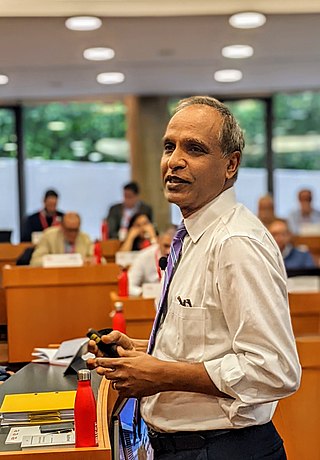
Krishna Palepu is an American academic, author, consultant and director of various corporations. He is the Ross Graham Walker Professor of Business Administration at Harvard Business School. He serves as Senior Adviser to the President of Harvard University for Global Strategy.

Joseph Grundfest is an American academic. He is the William A. Franke Professor of Law and Business at Stanford Law School and co-director of the Rock Center on Corporate Governance at Stanford University. He joined Stanford's faculty in 1990 after having served for more than four years as a Commissioner of the United States Securities and Exchange Commission, a position to which he was appointed by President Ronald Reagan.
Christine Jolls is the Gordon Bradford Tweedy Professor of Law and Organization at Yale Law School, where she has been since 2006. She is known for her work in the emerging theory of behavioral economics and law. Her areas of research include employment law and contracts.
Douglas Gordon Baird is an American legal scholar, the Harry A. Bigelow Distinguished Service Professor and a former dean of the University of Chicago Law School. He joined the faculty in 1980 and served as the dean from 1994 to 1999. He is a leader in the field of bankruptcy law.
Tarun Khanna is an Indian-born American academic, author, and an economic strategist. He is currently the Jorge Paulo Lemann professor at Harvard Business School; where he is a member of the strategy group, and the director of Harvard University’s South Asia initiative since 2010.

Kent Greenfield is an American lawyer, Professor of Law and Law Fund Research Scholar at Boston College, and frequent commentator to The Huffington Post. He is the author of The Myth of Choice: Personal Responsibility in a World of Limits and The Failure of Corporate Law: Fundamental Flaws and Progressive Possibilities, published by University of Chicago Press in 2006, and scholarly articles. He is best known for his "stakeholder" critique of the conventional legal doctrine and theory of corporate law, and for his leadership in a legal battle between law schools and the Pentagon over free speech and gay rights.
John J. Donohue III is an American law professor, economist, and the C. Wendell and Edith M. Carlsmith Professor of Law at Stanford Law School. He is widely known for his writings on effect of legalized abortion on crime and for his criticism of John Lott's book More Guns, Less Crime.
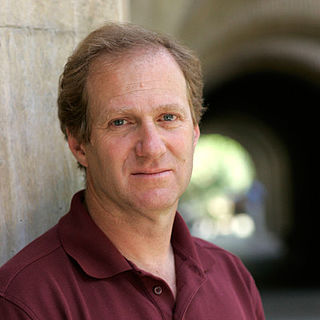
Michael Klausner is the Nancy and Charles Munger Professor of Business and Professor of Law at Stanford Law School. He has been a member of the Stanford Law School faculty since 1997. He works in the areas of corporate law, corporate governance, and financial regulation.
Masahiko Aoki was a Japanese economist, Tomoye and Henri Takahashi Professor Emeritus of Japanese Studies in the Economics Department, and Senior Fellow of the Stanford Institute for Economic Policy Research and Freeman Spogli Institute for International Studies at Stanford University. Aoki was known for his work in comparative institutional analysis, corporate governance, the theory of the firm, and comparative East Asian development.
Roberta Romano is Sterling Professor of Law at the Yale Law School. She is the first woman at Yale Law School to be named a Sterling Professor. Roberta Romano joined the Yale Law School faculty as a professor of law in 1985. She was named the Allen Duffy/Class of 1960 Professor of Law in 1991 and the Oscar M. Ruebhausen Professor of Law in 2005. She is Director of the Yale Law School Center for the Study of Corporate Law and Professor at the Yale School of Management.

Robert J. Jackson Jr. is an American lawyer and academic. He currently serves as a professor of law at New York University School of Law, where he is on public service leave. Jackson's research emphasizes the empirical study of executive compensation and corporate governance matters. On September 1, 2017, the White House announced that President Donald Trump had nominated Jackson to fill the open Democratic seat on the U.S. Securities and Exchange Commission (SEC). Jackson was unanimously approved by the Senate Banking Committee for the seat, and thereafter unanimously confirmed by the United States Senate on December 21, 2017.
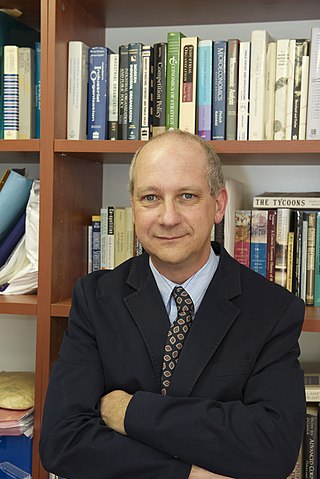
Yishay Yafeh is an Economist and a Professor of Finance at the Hebrew University of Jerusalem School of Business Administration in Israel. Between 2010–2012 he was the vice- dean of the Hebrew University School of Business Administration and the Dean of the School between 2012–2016.
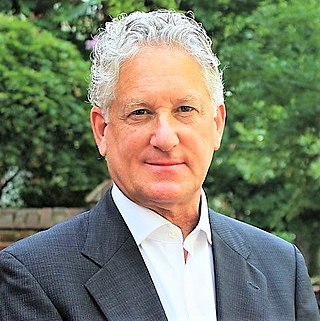
Harry Gerard Broadman is an international investment executive and global business strategist; an authority on trade, antitrust, corporate governance, sustainability, and innovation; and a non-executive corporate director. He is a Partner, managing director, and Chair of the Emerging Markets Practice and Chair of the Committee on Foreign Investment in the United States (CFIUS) Practice at the Berkeley Research Group LLC and on the faculty of Johns Hopkins University.
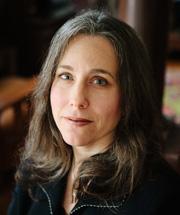
Jennifer Taub is an American law professor, advocate, and commentator focusing on corporate governance, financial market regulation, and white collar crime.
Henrik Cronqvist is the Robert J. and Carolyn A. Waltos Dean and Professor of Economics of the George L. Argyros School of Business and Economics at Chapman University in Orange, California, a position he has held since August 2022. He previously served as a professor of finance, Bank of America scholar, and vice dean for faculty and research at the University of Miami School of Business, where he conducted interdisciplinary research and taught finance and management courses at both undergraduate and graduate levels.









